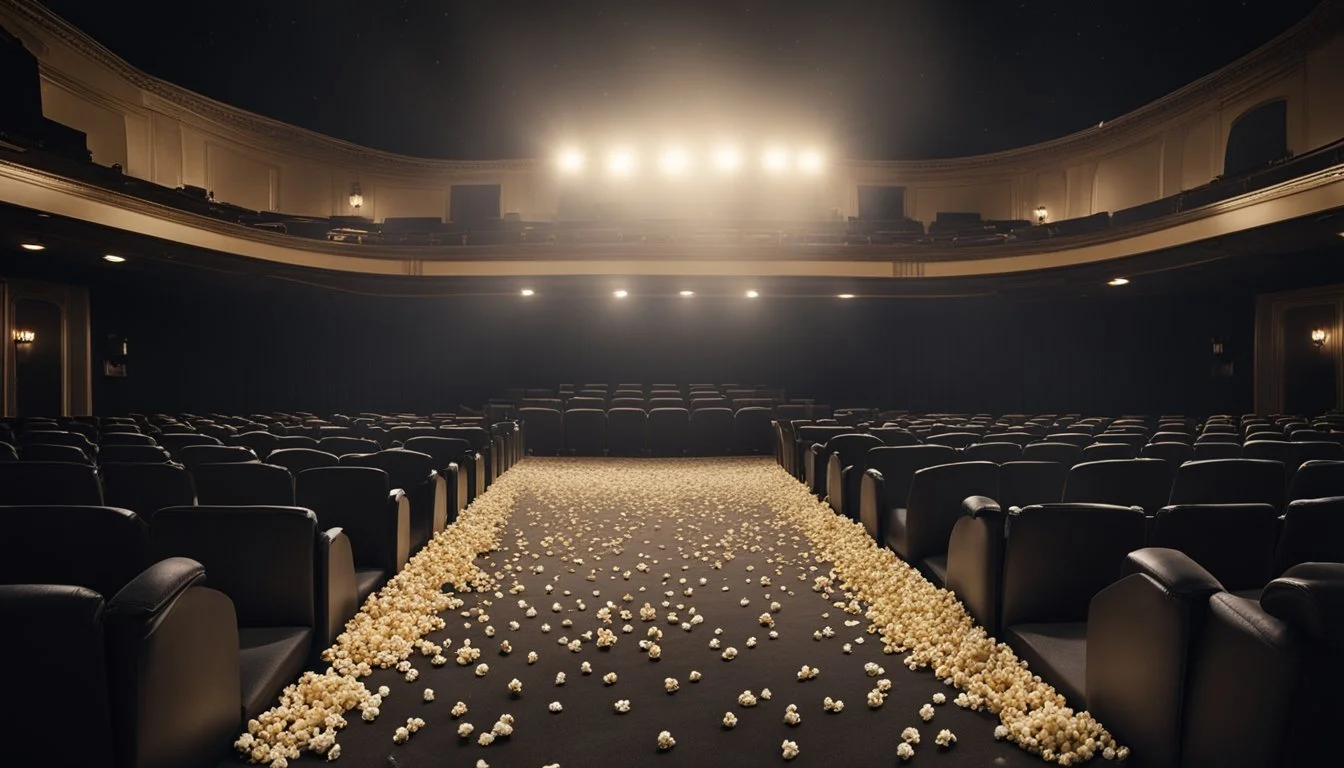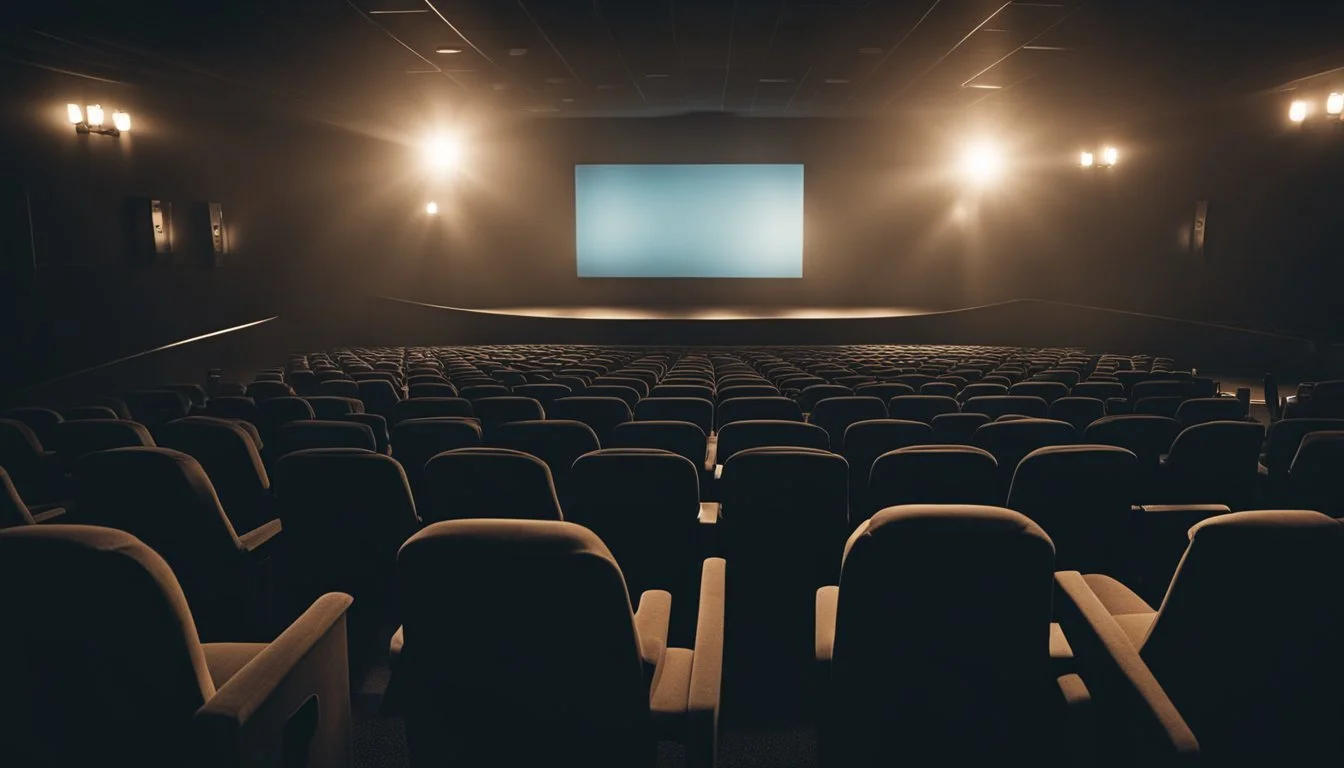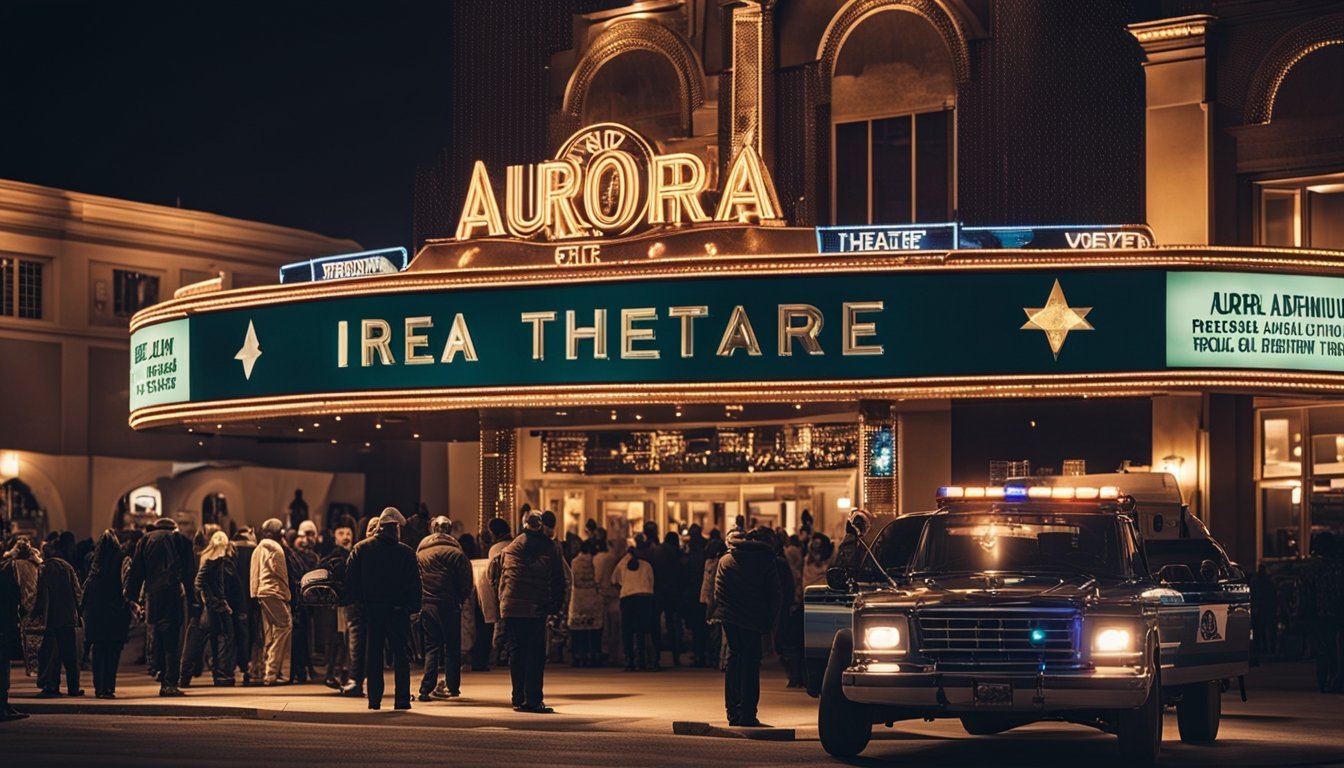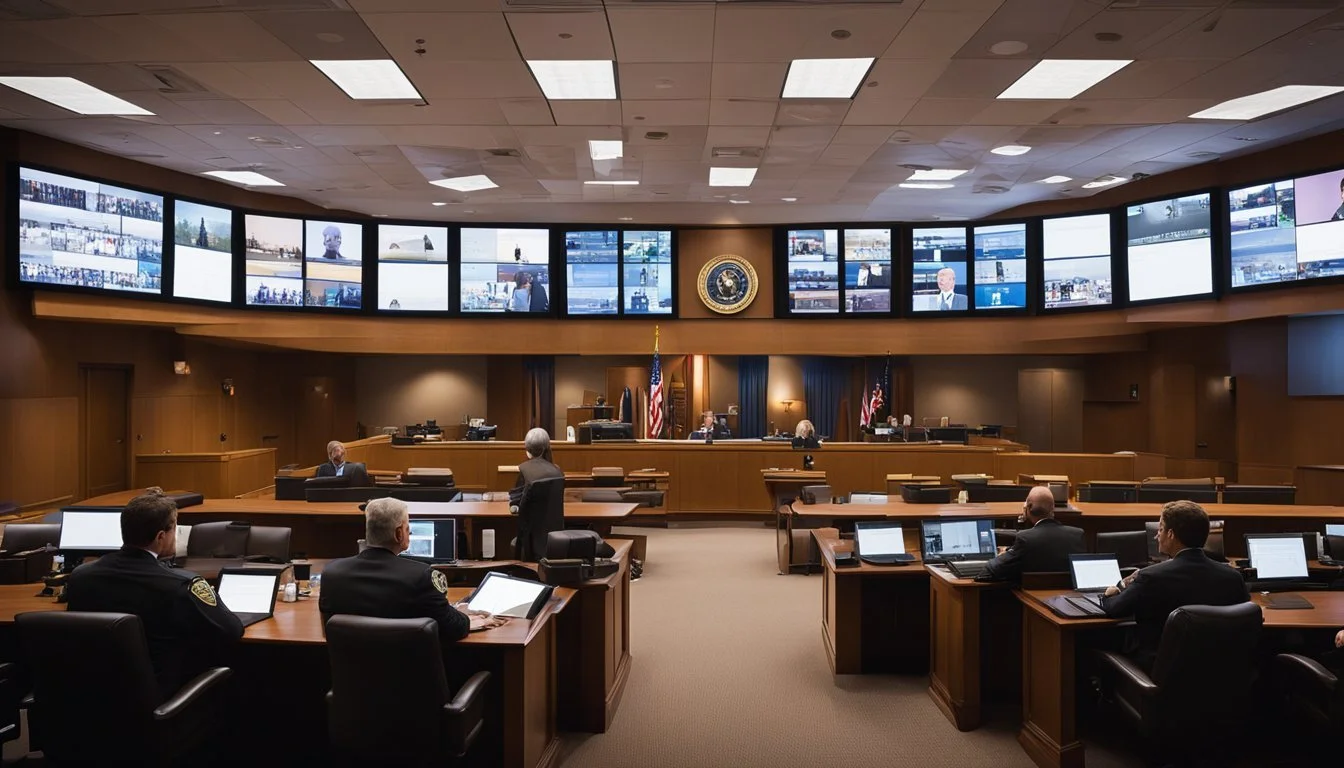6 Tragic Documentaries on the Aurora Theater Shooting
Examining the 2012 Colorado Massacre
The Aurora theater shooting on July 20, 2012 left an indelible mark on American history. During a midnight screening of "The Dark Knight Rises," a lone gunman opened fire, killing 12 people and injuring 70 others. This tragic event shocked the nation and sparked intense debates on gun control and mental health.
Several documentaries have explored the Aurora theater shooting, offering in-depth examinations of the tragedy and its aftermath. These films provide valuable insights into the events of that fateful night, the lives of the victims and survivors, and the lasting impact on the community. By presenting different perspectives and uncovering previously unknown details, these documentaries contribute to a deeper understanding of this devastating mass shooting.
1) American Tragedy (2019)
American Tragedy examines the 2012 Aurora theater shooting through the lens of the perpetrator's mother, Sue Klebold. The documentary provides a unique perspective on the tragedy, exploring the aftermath and its impact on families.
Director Josh Sabey interviews Sue Klebold, who shares her personal journey of grief and self-reflection. She discusses her struggles to understand her son's actions and her efforts to prevent future tragedies.
The film delves into mental health issues and the warning signs that may have been missed. It raises important questions about parental responsibility and the complexities of mass shootings.
American Tragedy offers a balanced view, presenting Sue Klebold's story while remaining respectful to the victims and their families. The documentary serves as a thought-provoking exploration of a difficult subject.
More information on American Tragedy
2) 11 Minutes (2022)
"11 Minutes" is a four-part documentary series that offers a comprehensive look at the Aurora theater shooting. The series explores the tragedy through interviews with survivors, first responders, and families of the victims.
Directed by Kim Snyder, "11 Minutes" provides a detailed timeline of the events that unfolded on July 20, 2012. It examines the 11-minute period during which the shooting took place, giving viewers a moment-by-moment account of the tragedy.
The documentary series features powerful testimonies from those directly affected by the shooting. Survivors share their harrowing experiences and the lasting impact on their lives.
"11 Minutes" also delves into the aftermath of the shooting, including the community's response and the legal proceedings that followed. The series explores themes of resilience, healing, and the ongoing debate surrounding gun violence in America.
More information on "11 Minutes" (IMDb)
3) Dark Knight Rises: The Untold Story
This documentary explores the events surrounding the 2012 Aurora theater shooting during a midnight screening of "The Dark Knight Rises." It examines the impact on the Batman franchise and its fans.
The film delves into the security measures implemented at movie theaters nationwide following the tragedy. It also discusses how the incident affected the film's marketing and release strategy.
Interviews with survivors and first responders provide personal accounts of that fateful night. The documentary examines the psychological toll on those present and the broader community of Aurora, Colorado.
The film also explores the connection between violent media and real-world violence, sparking discussions about media responsibility. It examines how the shooting influenced subsequent Batman films and public perception of the franchise.
More information on "The Dark Knight Rises" (2012)
4) Surviving the Night
The Aurora theater shooting left deep scars on survivors and the community. Several documentaries explore the harrowing experiences of those who lived through that tragic night.
"Aurora: After the Shooting" (2013) features interviews with survivors recounting their terrifying ordeal. The film provides intimate glimpses into their struggles with trauma and recovery.
Another documentary, "Voices from Aurora" (2015), focuses on the resilience of survivors. It highlights their efforts to heal and reclaim their lives in the aftermath of the shooting.
"Dark Night" (2016) takes a unique approach, blending fiction and non-fiction elements. The film creates a haunting atmosphere that echoes the survivors' ongoing emotional challenges.
These documentaries offer powerful testimonies from those who endured the unthinkable. They shed light on the long-lasting impact of mass shootings and the strength of the human spirit.
Link to "Aurora: After the Shooting" on IMDb
5) Voices from the Theater
"Voices from the Theater" (2014) offers a poignant look at the Aurora shooting through firsthand accounts of survivors. The documentary captures raw emotions and personal stories, giving viewers insight into the trauma experienced that night.
Interviews with victims and their families reveal the long-lasting impact of the tragedy. The film explores themes of resilience and healing as survivors share their journeys of recovery.
Eyewitness testimonies provide a vivid recreation of the events inside the theater. These accounts offer a powerful perspective on the chaos and fear that unfolded during the shooting.
The documentary also features interviews with first responders and medical personnel who arrived at the scene. Their recollections add another layer to the narrative, highlighting the community's response to the crisis.
"Voices from the Theater" serves as a tribute to those lost and a platform for survivors to share their stories. It stands as a testament to the strength of the human spirit in the face of unimaginable tragedy.
More information on "Voices from the Theater" (IMDB)
6) Inside Aurora: A Survivor's Story (2013)
This documentary offers a deeply personal account of the Aurora theater shooting through the eyes of a survivor. The film focuses on Marcus Weaver, who was present during the tragic event on July 20, 2012.
Weaver shares his harrowing experience of being in the Century 16 movie theater when the gunman opened fire. He recounts the chaos and terror of that night, as well as the physical and emotional toll it took on him and others.
The documentary explores Weaver's journey of healing and recovery in the years following the shooting. It highlights the challenges he faced in dealing with trauma and the importance of support systems in the aftermath of such a devastating event.
Through Weaver's story, the film sheds light on the long-lasting impact of mass shootings on survivors and their communities. It also touches on themes of resilience and the human capacity to overcome unimaginable tragedy.
"Inside Aurora: A Survivor's Story" provides viewers with a raw and intimate look at the aftermath of one of America's deadliest mass shootings.
More information on the Aurora theater shooting
Background of the Aurora Theater Shooting
The Aurora theater shooting was a devastating mass shooting that occurred on July 20, 2012, in Aurora, Colorado. It shocked the nation and left a lasting impact on the community.
Details of the Incident
The shooting took place during a midnight screening of "The Dark Knight Rises" at the Century 16 movie theater. James Eagan Holmes, a 24-year-old man, entered the theater dressed in tactical gear. He set off tear gas grenades and opened fire on the audience using multiple firearms.
The attack resulted in 12 fatalities, with the youngest victim being just 6 years old. An additional 70 people were injured, 58 of them from gunfire. Holmes' actions created chaos and panic within the crowded theater.
Law enforcement responded quickly to the scene. Holmes was apprehended in the theater parking lot shortly after the shooting.
Immediate Aftermath
In the hours following the shooting, local hospitals were overwhelmed with injured victims. Emergency responders worked tirelessly to treat the wounded and provide support to those affected.
The community of Aurora came together to mourn the victims and support the survivors. Vigils and memorial services were held throughout the city. The incident sparked national discussions on gun control and mental health issues.
The Century 16 theater temporarily closed its doors. It later reopened with renovations and a new name. The site became a place of remembrance for the victims and a symbol of the community's resilience.
Impact on Community and Survivors
The Aurora theater shooting left deep scars on the local community and survivors. Many faced ongoing mental health challenges in the aftermath of the tragedy. Community support initiatives emerged to help those affected heal and rebuild.
Mental Health Challenges
Survivors of the Aurora shooting grappled with severe trauma and PTSD. Flashbacks, anxiety, and depression were common. Many struggled to feel safe in public spaces, especially movie theaters.
Some survivors faced survivor's guilt, questioning why they lived while others died. Grief counseling and therapy became crucial for processing the trauma. Support groups formed to provide a safe space for survivors to share their experiences.
Sleep disturbances and nightmares plagued many in the years following the attack. Some turned to substance abuse to cope with emotional pain. Relationship difficulties arose as survivors worked through complex emotions.
Community Support Initiatives
Aurora residents rallied to support survivors and victims' families. Vigils and memorials allowed the community to grieve together. Local businesses offered free services to those impacted by the shooting.
The 7/20 Memorial Foundation emerged to honor victims and support healing. They organize an annual remembrance vigil and memorial 5K run. A permanent memorial was built to provide a place of reflection.
Mental health services expanded to meet increased demand. Trauma-informed care became a focus for local healthcare providers. Schools implemented additional counseling resources for students.
Community art projects promoted healing through creative expression. Volunteer efforts helped survivors with practical needs like home repairs. Faith communities offered spiritual support and safe gathering spaces.
Changes in Legislation and Security Measures
The Aurora theater shooting sparked intense debates on gun control and prompted enhanced security measures in movie theaters across the United States.
Gun Control Debates
Colorado lawmakers passed several gun control bills in response to the tragedy. These included background checks for all firearm transfers and a ban on high-capacity magazines. The state also allocated funds for mental health services and school safety programs.
Some gun rights advocates opposed these measures, arguing they infringed on Second Amendment rights. The debate highlighted the ongoing national divide over gun control policies.
Several other states enacted similar legislation following the shooting. These laws focused on strengthening background checks, limiting magazine capacities, and improving mental health reporting systems.
Theater Security Improvements
Movie theaters nationwide implemented new safety protocols after the Aurora incident. Many chains increased their visible security presence, including uniformed guards at entrances.
Theaters revised their policies on costumes and props, often banning masks and fake weapons. Some locations installed metal detectors and began conducting bag checks.
Staff received additional training on emergency procedures and threat assessment. Improved communication systems were put in place to quickly alert authorities in case of emergencies.
Some theaters upgraded their infrastructure, adding emergency lighting and reinforcing exit doors. Regular safety drills became more common to ensure staff readiness for potential incidents.






